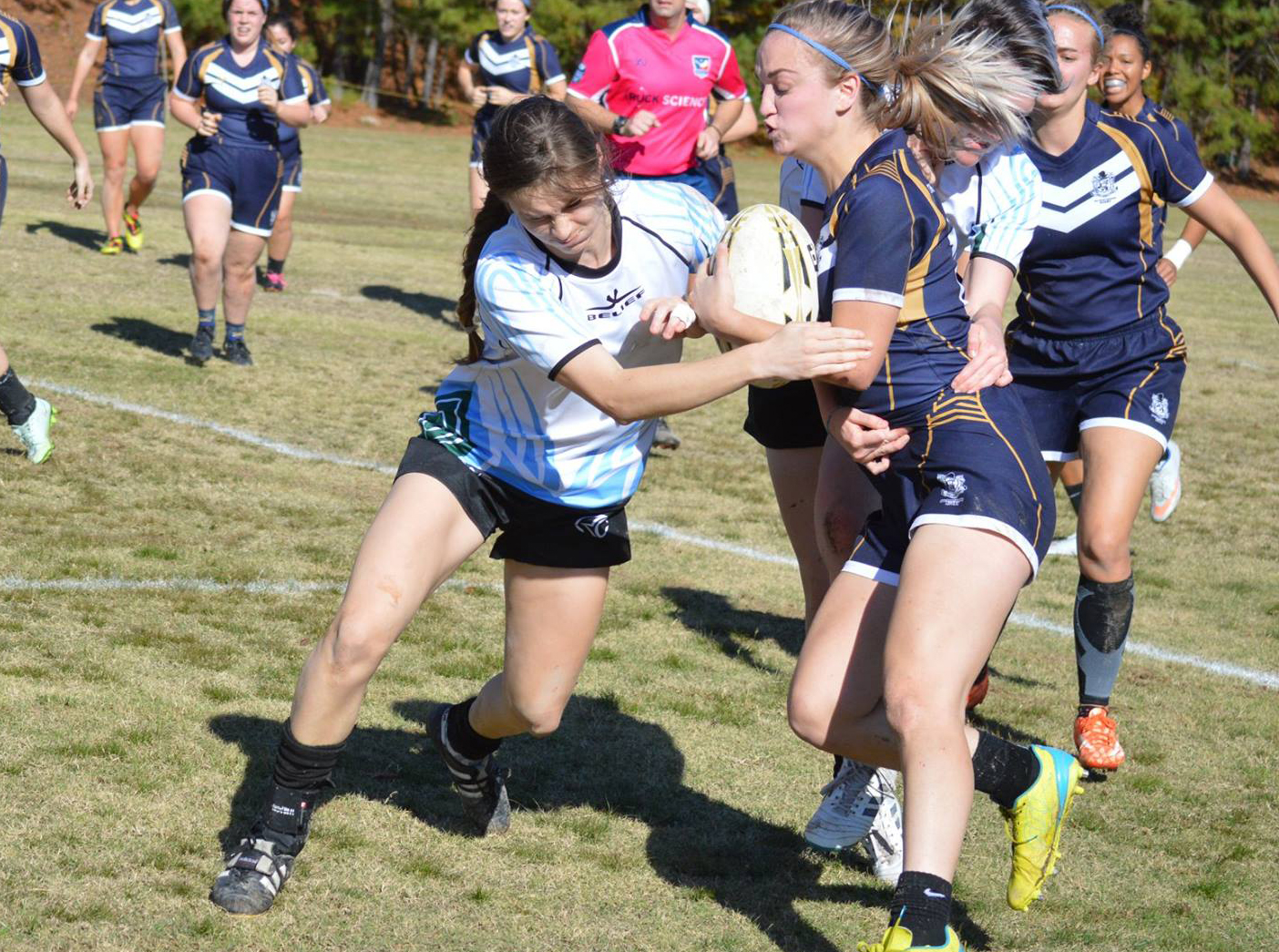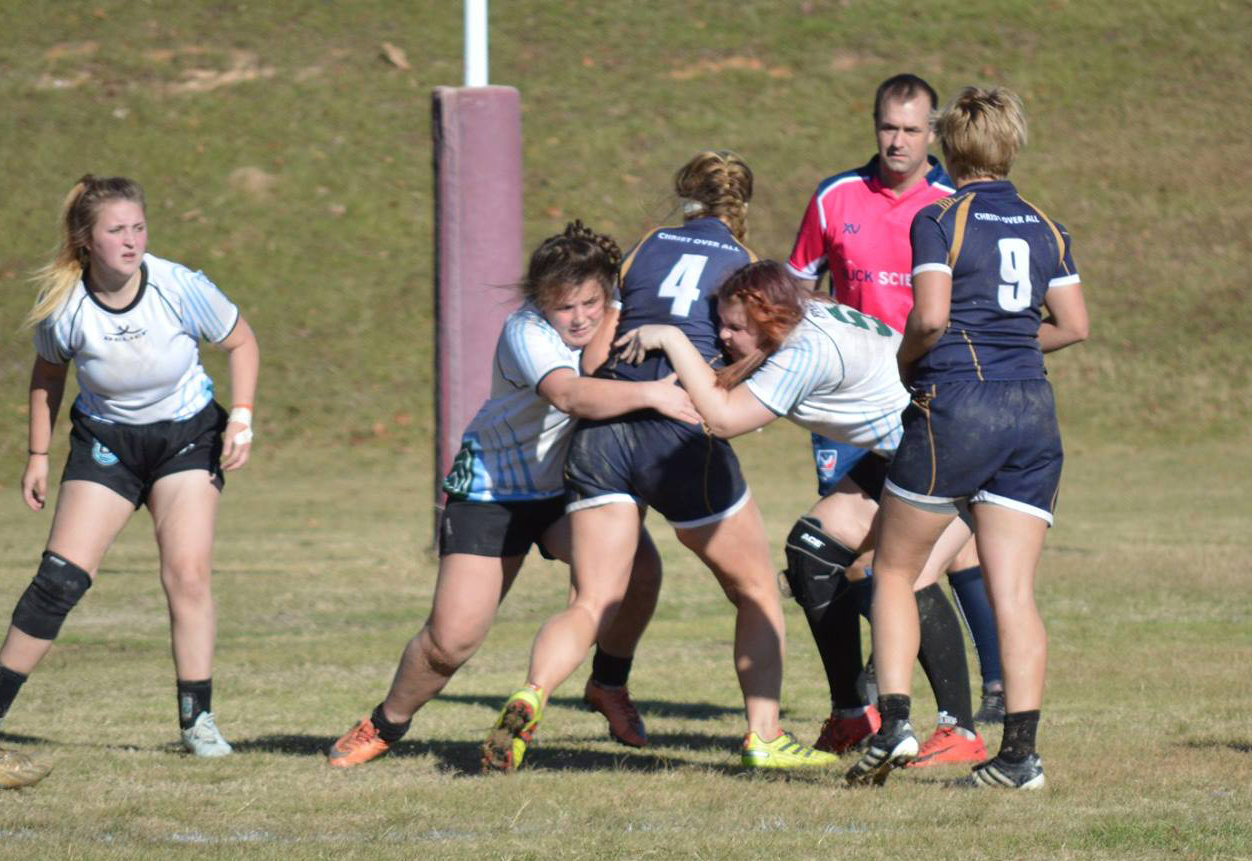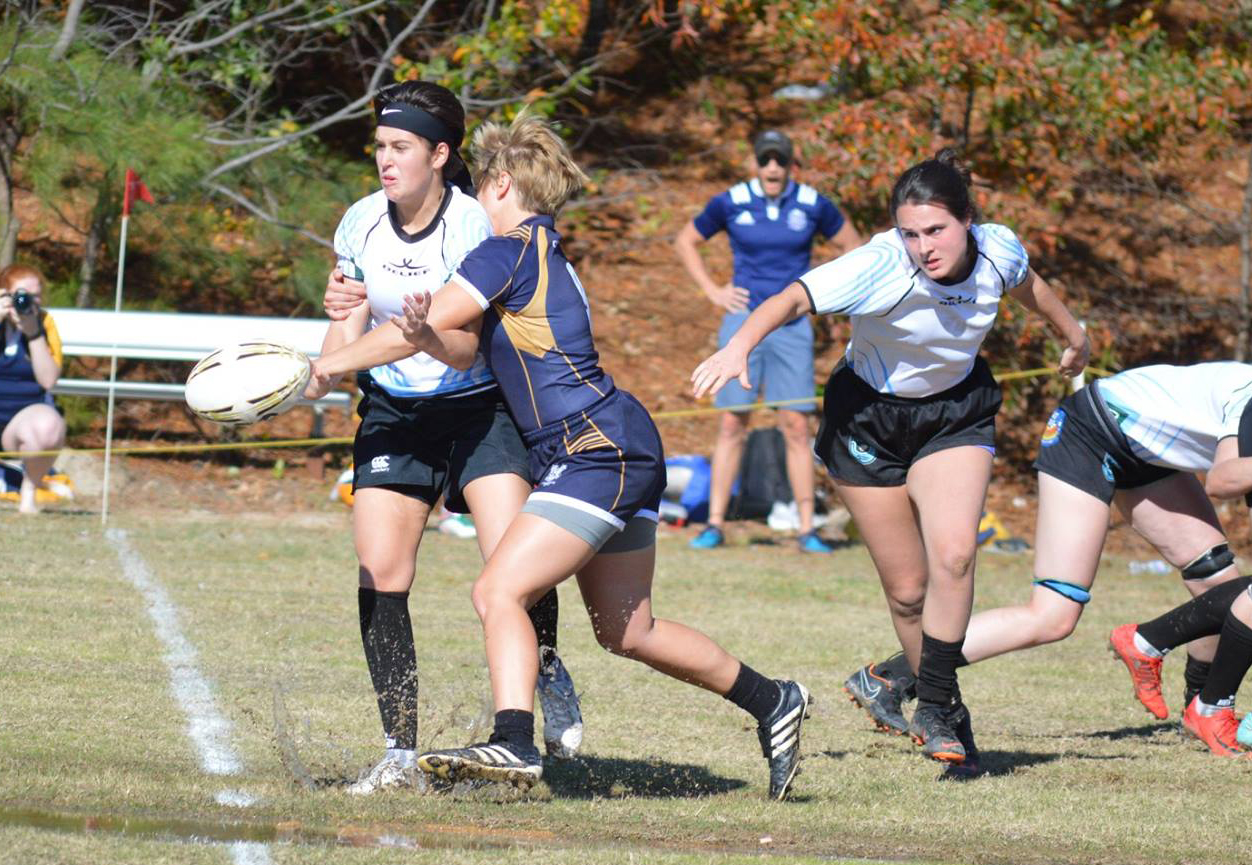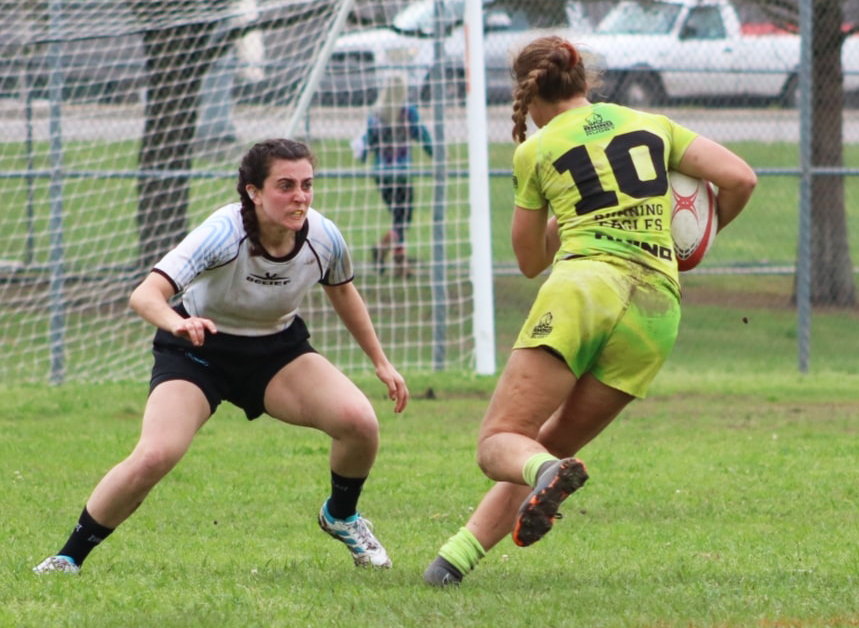
Photo: Tabitha Sneed Lowe
This weekend the South Independent Rugby Conference (SIRC) is contesting its championship in New Orleans, giving the reigning DII College Spring Championship titleholder, Tulane University, home-field advantage. But the Green Wave is undergoing a big transition this year, and that has injected an element of uncertainty into this weekend’s playoffs.
“I think my own team is kind of a wild card right now. I don’t know how it’s going to go,” Tulane head coach Jessica Mallindine said. “Fourteen players graduated last year and many of those seniors had been through the many iterations of [spring] playoffs, those really tough matches that develop you.”
Many of those players had been instrumental to Tulane’s re-emergence as a program. The team disbanded for a decade after Hurricane Katrina and then rejoined matrix life in 2016 (read more). The Green Wave surprised everybody and won the 2016 spring title, finished runner-up to Kennesaw State in 2017, and then returned to California to claim the 2018 trophy.
“That was very much the conversation last year,” Mallindine said of the playoff-minded squad. “We had so many graduating seniors and they wanted to get back to the spring final. And to their credit, they did it.”
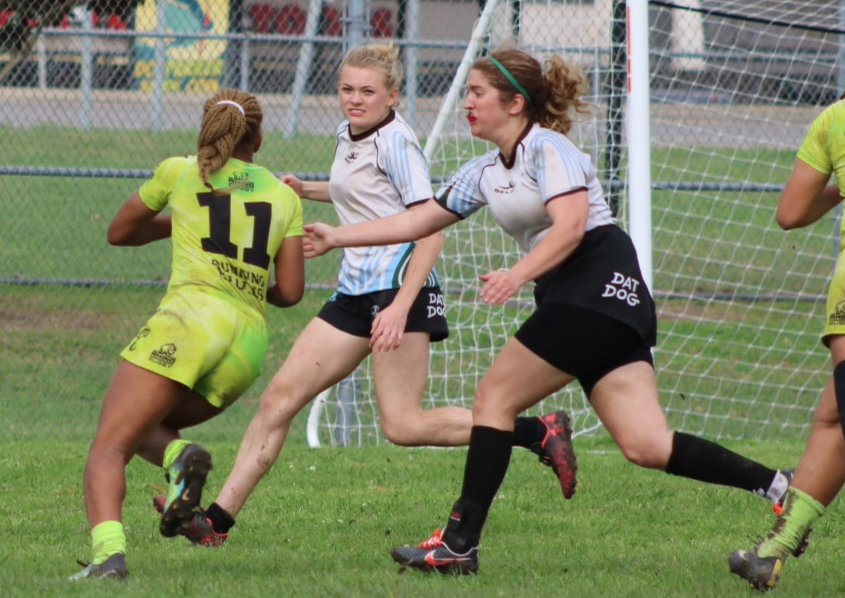
Leifer tracking / Photo: Tabitha Sneed Lowe
But winning titles is not the primary concern with the current group, whose focus is rebuilding. Good recruitment meant that there are still a solid 26-28 players committed to practices and traveling, but it’s that on- and near-field experience that needs to rebuild.
“A lot of really critical roles needed to be filled, and not just position wise but from a leadership perspective,” Mallindine explained. “The ones who always rallied the team, or pumped up everyone to play, or helped make sure everyone’s recovering properly, or kept the team organized – those are the minor roles that make a team function.
“And that plays out on the field – that player who launches the defensive line, the one who organizes the team when things get disorganized,” the coach continued. “These are the services they provided the team – not just the number on their backs – and it makes a difference. That’s dropped back on the group that is left, and they’ve been considering how to fill those roles, because there’s no obligation to become that other person.”
Gwen Leifer and Clare Sullivan are the team-elected leaders in the backs and forwards, respectively. Leifer has moved up from fullback, Sullivan has dropped from the second row to No. 8, and their guidance has aided the juniors and sophomores as they grow into their new roles. Leifer and Sullivan have also been crucial in driving a differently structured game plan.
“Because of the change in personnel and recognizing that being fluid about how you play is always important, we spent a lot of time in the fall evaluating our strategy, that it needed to change to accommodate the skill set on the team,” Mallindine said. “So we tweaked how we do things and that will hopefully show up come competition time, instead of just executing in practice.”
The fall was a good mix of different competition and competition formats, and Mallindine reflected on this time fondly as players emerged in more prevalent roles. The game came together in the spring and a pair of telling matches helped expedite that process.
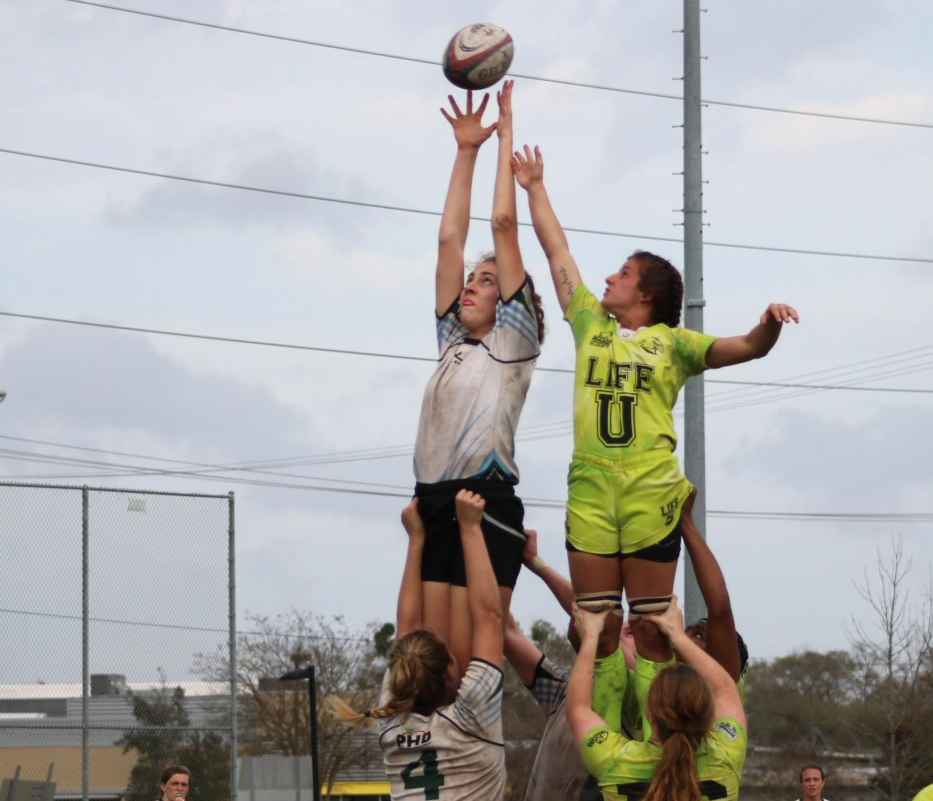
Photo: Tabitha Sneed Lowe
“We were really happy that Life was willing to come down with its JV team for the Mardi Gras tournament in March,” Mallindine said of the New Orleans Halfmoons’ annual event. “Typically we don’t get those higher-level, DI Elite teams, but I reached out to Ros [Chou] and expressed interest in letting her team beat up Tulane a bit. We made sure to schedule a longer match and it was a good learning opportunity playing a team like that. It shows major issues in your game that you might not see against other competition.”
The SIRC league match against UT Chattanooga was also valuable. The weather in Tennessee was half that of New Orleans (40 degrees) and the game was played on a rainy, muddy, soggy day.
“Everyone was miserable,” Mallindine said of the weather. “But it’s a great development opportunity for them, mostly working under different conditions than what they’re used to. It worked on their grit, too.”
Tulane takes the top seed out of the SIRC West and will play East runner-up Georgia Tech in Saturday’s semifinals. East leader University of Georgia and UT Chattanooga will contest the second semifinal, and placing matches will play out on Sunday. It is unclear how many seeds the conference will receive to the spring regional championships on April 20-21, but the league will have more than one representative.
“One of the things I love about working with this team is they always manage to surprise me with what ends up motivating them and what gets them excited,” Mallindine said. “Right now, it’s just the love of the sport. They might not understand what’s happening 100 percent of the time but they’re enjoying the team, and the team’s done a good job maintaining an environment that welcomes new athletes. So at this point, they’re just excited to be playing with the team and not worried about final outcomes from tournaments like this.”
The coach asserted that there is a competitive element on the team, and Tulane is playing to win. But this weekend is another opportunity for the squad to face new challenges, the ones that educate and potentially alter a squad’s outlook.
With regional championships on the line, Mallindine has warned the team that the next stage occurs over Easter weekend. Ninety percent of the team is from out-of-state and may have planned travel home, so player availability might be an issue. For now, it’s one-game-at-a-time.




